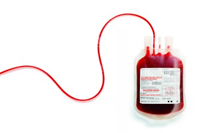


In a preliminary ruling delivered today in a case litigated by ECSOL-member Caroline Mécary (Geoffrey Léger v Ministre des affaires sociales et de la santé, Établissement français du sang, C-528/13) the Court of Justice of the European Union (CJEU) has held that men who have sex with men (MSM) may not be subjected a priori to a blanket ban on donating blood.
A blanket ban on MSN would only be admissible if - given the concrete epidemiologic situation in a certain member-state - a high level of health protection of the recipients could neither be achieved by (a) effective techniques for detecting transmission risks by testing each donated sample of blood applying the most recent scientific and technical procedures, nor by (b) an evaluation of the level of risk presented by each individual donor on account of his own sexual behaviour (using questionnaires and individual interviews not restricted to blanket questions for any kind of life-time sex with other men but rather more specific inquiries into the period which has elapsed since the prospective donor’s most recent sexual relations in relation to the length of the ‘window period’, the stability of the relationship of the person concerned, and whether sexual relations were protected).
Given that the application of the most recent scientific and technical procedures reduces the "window period" for detecting Hiv to two weeks and given that not all kinds of sex between men could involve a risk of Hiv-transmission, the CJEU´s ruling means that only those MSM may be exluded from donating blood who, within a few weeks before the donation, have engaged in unprotected sex involving a risk of receiving blood or sperm.
The Judgment
Helmut Graupner